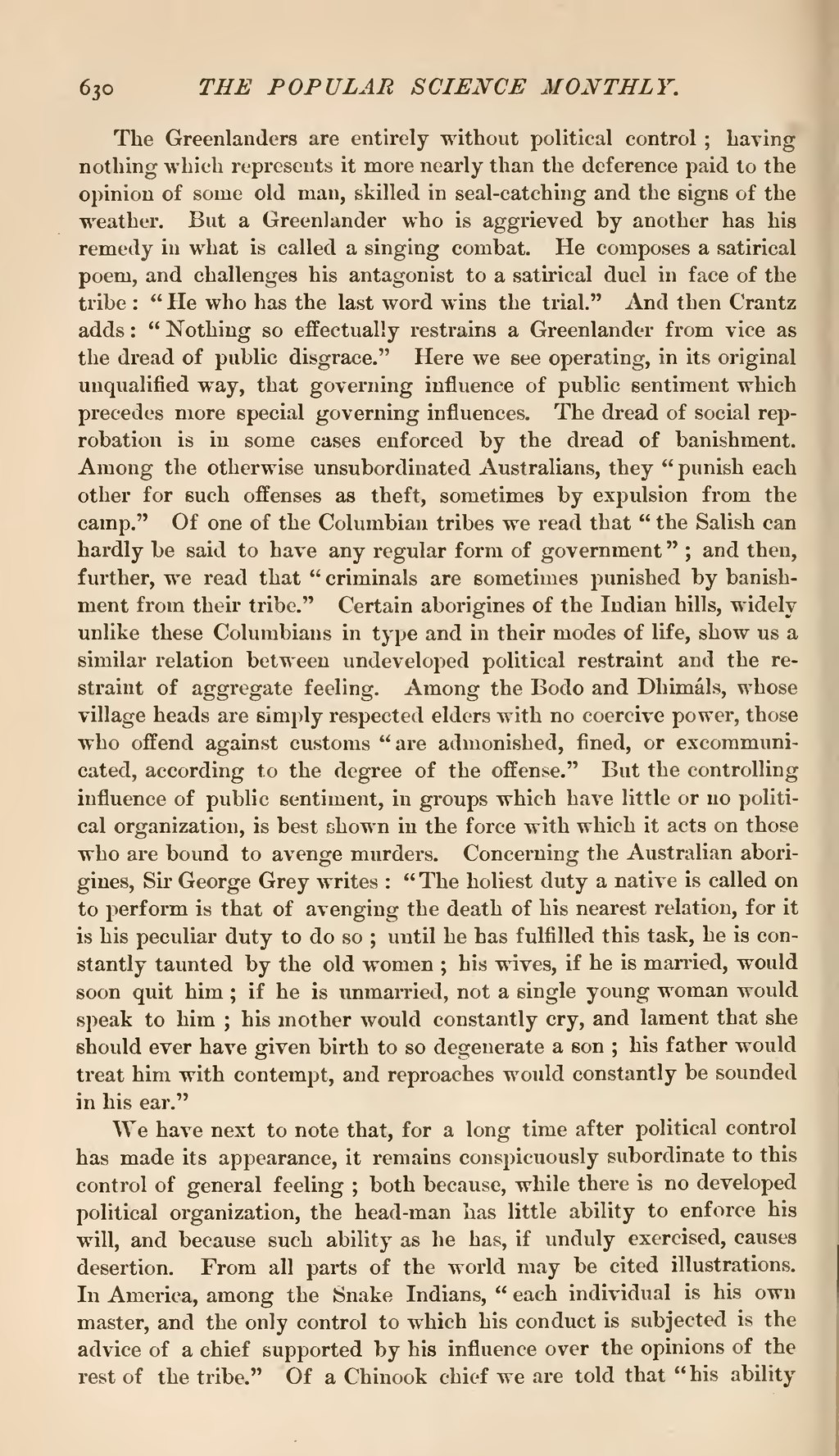The Greenlanders are entirely without political control; having nothing which represents it more nearly than the deference paid to the opinion of some old man, skilled in seal-catching and the signs of the weather. But a Greenlander who is aggrieved by another has his remedy in what is called a singing combat. He composes a satirical poem, and challenges his antagonist to a satirical duel in face of the tribe: "He who has the last word wins the trial." And then Crantz adds: "Nothing so effectually restrains a Greenlander from vice as the dread of public disgrace." Here we see operating, in its original unqualified way, that governing influence of public sentiment which precedes more special governing influences. The dread of social reprobation is in some cases enforced by the dread of banishment. Among the otherwise unsubordinated Australians, they "punish each other for such offenses as theft, sometimes by expulsion from the camp." Of one of the Columbian tribes we read that "the Salish can hardly be said to have any regular form of government"; and then, further, we read that "criminals are sometimes punished by banishment from their tribe." Certain aborigines of the Indian hills, widely unlike these Columbians in type and in their modes of life, show us a similar relation between undeveloped political restraint and the restraint of aggregate feeling. Among the Bodo and Dhimáls, whose village heads are simply respected elders with no coercive power, those who offend against customs "are admonished, fined, or excommunicated, according to the degree of the offense." But the controlling influence of public sentiment, in groups which have little or no political organization, is best shown in the force with which it acts on those who are bound to avenge murders. Concerning the Australian aborigines, Sir George Grey writes: "The holiest duty a native is called on to perform is that of avenging the death of his nearest relation, for it is his peculiar duty to do so; until he has fulfilled this task, he is constantly taunted by the old women; his wives, if he is married, would soon quit him; if he is unmarried, not a single young woman would speak to him; his mother would constantly cry, and lament that she should ever have given birth to so degenerate a son; his father would treat him with contempt, and reproaches would constantly be sounded in his ear."
We have next to note that, for a long time after political control has made its appearance, it remains conspicuously subordinate to this control of general feeling; both because, while there is no developed political organization, the head-man has little ability to enforce his will, and because such ability as he has, if unduly exercised, causes desertion. From all parts of the world may be cited illustrations. In America, among the Snake Indians, "each individual is his own master, and the only control to which his conduct is subjected is the advice of a chief supported by his influence over the opinions of the rest of the tribe." Of a Chinook chief we are told that "his ability
